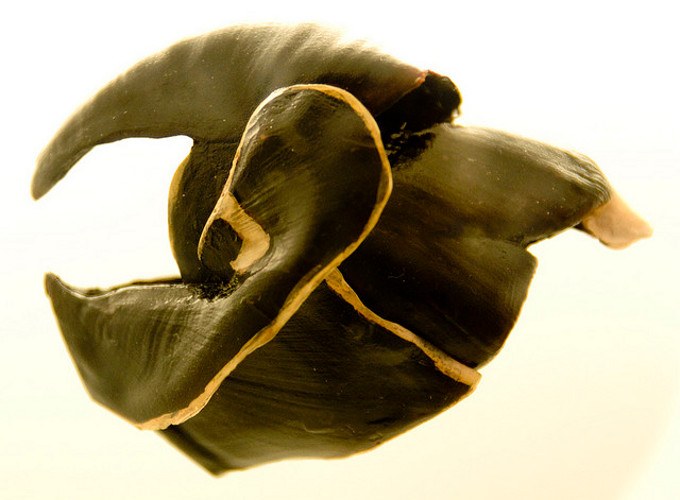
The squids beak possesses interesting physical properties, which might improve certain medical devices.
How would you attach something as hard as steel to something soft like flesh yet not have it tear apart when subjected to stress? Researchers interested in this question recently probed how the squid accomplishes this as its beak is incredibly hard yet it attaches to incredibly soft tissue. Their research is published in the March 26 issue of the Journal of American Chemical Society.
-

- A pictorial representation of how the squid accomplishes this feat using a gradient of hard to soft materials.
According to researcher Stuart Rowan, “Squid beaks are a stiff material, but they have to attach to very soft tissue. … They don’t have any bones per se. Imagine a piece of steel attached to a piece of plastic and you started bending or putting stressors on it. Things would start to tear, and that’s obviously not very good for the squid.”
What they learned is the squid uses a gradient of hard to soft materials to accomplish the feat and the researchers were able to mimicked this property. The new materials could lead to interesting new medical applications including prosthetic limbs, central vein ports, and even unique glucose sensors for diabetics.
(via Freshwater)









0 Comments